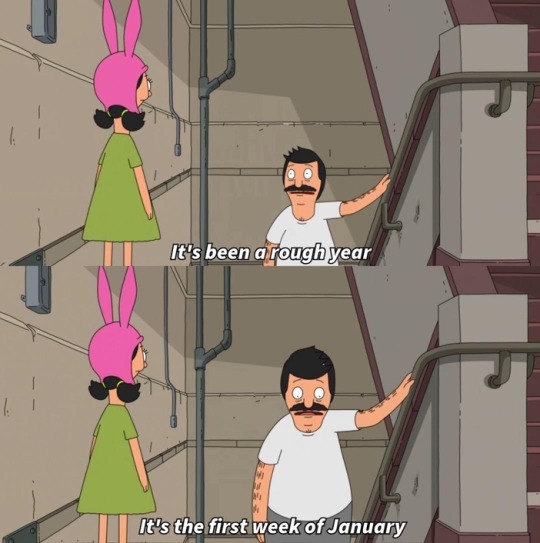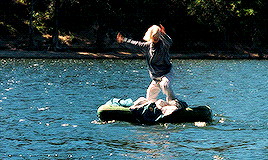Don't wanna be here? Send us removal request.
Text
Got fired from my job on 1/4/24 after almost 8 years. 2024 is liiiiiit 🔥🔥

happy new year, y’all
106K notes
·
View notes
Text
I firmly believe what ever you're obsessed with at 11/12 years old becomes a core part of who you are, regardless if you lose interest in it or not. Maybe some of you were lucky and were obsessed with warrior cats or smth, and if you're real unlucky it was probably twilight.
127K notes
·
View notes
Text
FP: *calling Jughead*
Jughead: *picks up* oh, hey, dad. What’s up?
FP: Hello, son. Just calling to check on you. How are you, boy?
Jughead: I’m fine. The school is nice. The kids are awful, but the food is great, so... all is good. And how are things back home?
FP: well, same as always. JB is making new friends, Riverdale is still keeping me busy, and your wife still can’t stay away from a good mystery.
Jughead:... Dad, you’ve done it again.
FP: eh? What did I do, son?
Jughead: *sigh* you’ve called Betty my wife... again.
FP: is she not?
Jughead: no, dad. She isn’t...
FP: yet.
Jughead: *smiles, blushing* yeah... Yet.
248 notes
·
View notes
Text
every year after you turn 17 you get further away from being the age of the dancing queen and that’s my least favorite thing about growing up
661K notes
·
View notes
Text
I think about Ninny a lot.

Ninny (or Ninnie/Ninni) is from the Moomin book “Tales from Moominvalley” and the episodes of the cartoon “The invisible friend” and “The invisible child”.
Ninny is a very shy and nervous little girl who was being raised by her aunt. However, her aunt didn’t like the child, only looking after her out of obligation. But obligation or not, the aunt treated Ninny very badly, forcing her to do demeaning chores and other “horrible jobs”. Too-Ticky describes the aunt with;
“It wouldn’t be so bad if she just got mad or yelled at her, but she’s cold and sarcastic, which is much worse.”
Eventually, the aunt’s treatment of Ninny got to a point where Ninny was so afraid of her guardian’s constant criticism and snide remarks, she turned invisible, and lost her ability to speak.
The aunt handed her over to Too-Ticky, saying she had no time or interest in raising a child she couldn’t even see. Too-Ticky brings Ninny to the Moominhouse, believing that if anyone could be nice enough to help Ninny turn visible and find her voice again, it would be the Moomin family.
Moominmama is quick to offer the child support and care, feeding her, giving her a room of her own, and tucking her in, telling her that if Ninny feels scared or lonely during the night to come wake Moominmama up and that she’ll talk to her to help her feel better. Moominmama also makes one of her grandmother’s home remedies (which always work) to help. Moomintroll and his friends also invite Ninny to play with them despite admitting that it’ll be hard to play with someone you can’t see, but they choose things that can easily include Ninny.
Slowly, and with time, Ninny starts becoming visible again and manages to talk in a weak, shy voice, until only her face still remains gone.
However, in the end nothing anyone else does turns Ninny back to normal. It didn’t matter how much medicine she drank or how nice people were to her, nothing anyone else did could bring Ninny’s face back.
While at the beach one day, Moominpapa decides to play a prank on Moominmama and push her into the water. Ninny stops him when she sees what he’s up to, biting Moominpapa’s tail before she starts yelling at him in anger, spurred to defend someone she cares about. Her ability to stand up to a bully is ultimately what makes Ninny completely visible again. Moominmama saying that all it took to cure her, was for her to get angry.

Finally cured of her invisibility and with her voice back, Ninny turns out to be an energetic and strong-willed girl. With her new self-confidence and ability to speak up for herself, Ninny leaves the Moominhouse with Too-Ticky, saying that she’s ready to face anything now. Except seeing her aunt.
But that doesn’t seem to be a problem, as Ninny walks away with Too-Ticky, presumably never to return to her cruel aunt again.
The metaphor here is not very hard to understand. I don’t think I even need to explain anything. It’s a children’s story (and cartoon) about overcoming emotional abuse and regaining your confidence in yourself and reclaiming your power. The story also shows that although support, love and care from others is essential in healing from abuse, at the end of the day the only person who will give you the ability to move past it can only be yourself. It takes time, it takes support from others, and it takes courage on your part, but the person who helps you overcome past trauma is you.

For a story aimed squarely at young readers, it manages to tackle a heavy subject matter without the story itself being dark, unpleasant, or overwhelming, and in a manner where children can recognise the reality of the situation beneath the metaphor without exposing them to the full unpleasantness of abuse.
The story is written with an understanding of Ninny’s situation, and a very clear and open empathy towards her, as well as an honest desire to see things end happily for her.
14K notes
·
View notes
Text
Honestly, between 2x22 and this episode, I am convinced that Jughead is always two steps away from proposing to Betty. Like, half of their interactions just make him think, “God, I want to marry her,” and it’s just a matter of time before he blurts it out in the middle of a (highly competitive) game of Scrabble.
Like, I’m not even talking about purposeful shit like spelling out "marry me” with Scrabble tiles (although I wouldn’t put that past him). I’m saying that Betty lands two triple word scores and a double letter score with “quixotic” off of Jughead’s “identify” and Jughead just can’t help himself. It’s hard to keep his burning desire to spend the rest of his life with her on the inside when she’s being so brilliant.
551 notes
·
View notes
Photo



“Why us?” “That’s the way mom and dad wanted it.”
2K notes
·
View notes
Text
echo waking up in her cryo chamber floating through space 125 years later courtesy of Jordan Green and Madi Griffin:

3K notes
·
View notes







